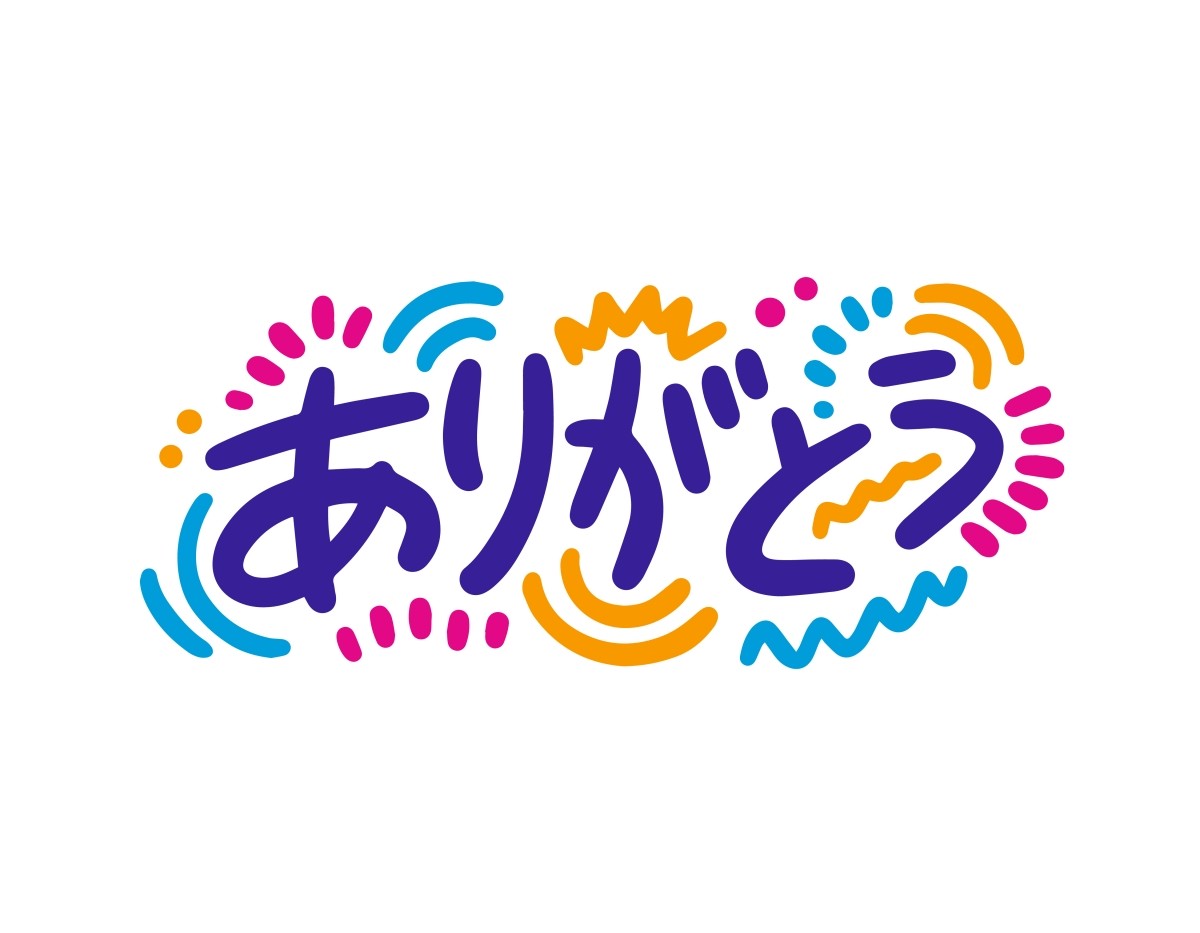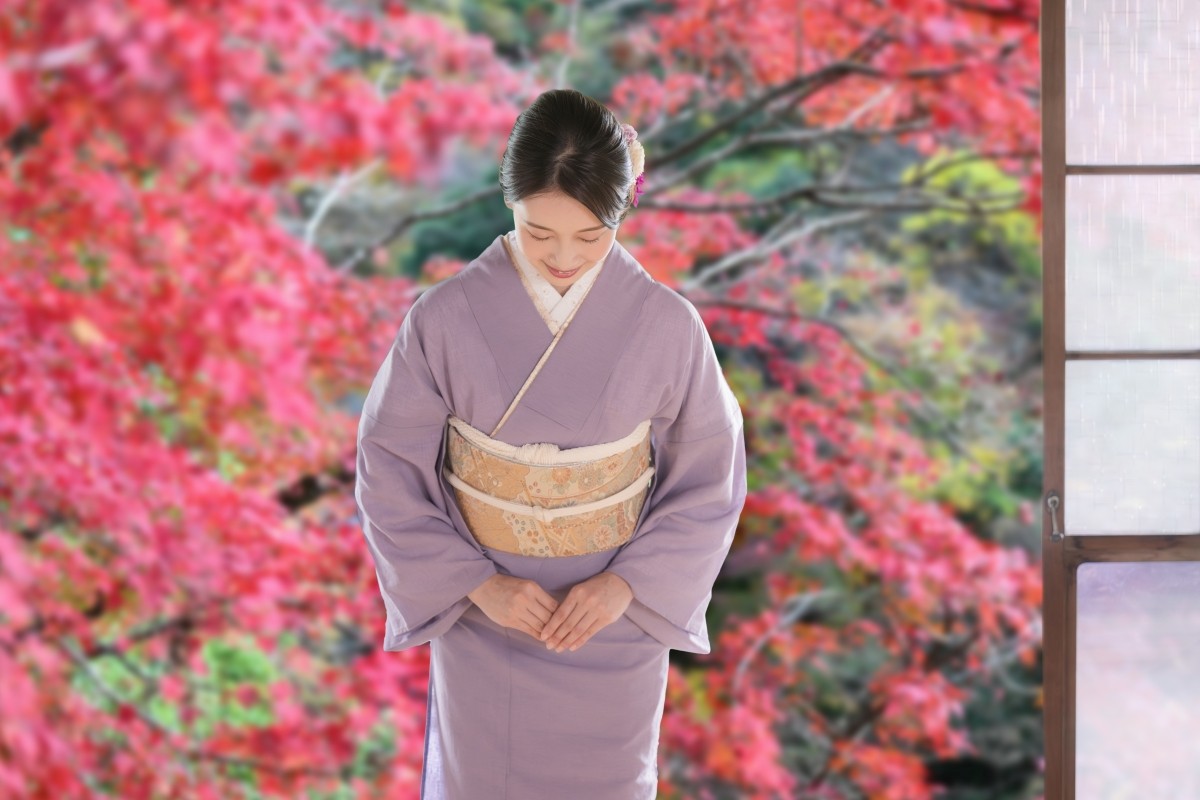How to Say "Thank You" in Japanese? A List of Words of Gratitude

Let’s learn how to say "Thank you" in Japanese! When you are in an unfamiliar place, there are often unexpected situations, and it’s quite likely that someone will lend you a hand. In such moments, expressing your gratitude in Japanese to the person who helped you will definitely leave them feeling appreciated. In this article, we introduce the meaning, proper usage, writing, responses, and conversation examples for "Arigatou gozaimasu."
How to Say "Thank You" in Japanese?

In Japanese, "Thank you" is said as "ありがとう (Arigatou)."
The word "Arigatou" originates from the Buddhist concept of "Arigatashi," which means "difficult to exist." It comes from the teaching that being born is a rare and difficult thing, and thus, we should be thankful for being alive.
Furthermore, receiving help from someone is a rare "有り難し (Arigatashi)" occurrence, and over time, the word evolved into "Arigatou," which is now used to express gratitude.
The Difference Between "Arigatou" and "Arigatou gozaimasu"
"ありがとうございます (Arigatou gozaimasu)" is the polite form of "Arigatou." "Arigatou" is generally used with family or close friends, whereas "Arigatou gozaimasu" is often used in customer service, business, or with a superior, giving a more formal impression.
How to Write "Arigatou gozaimasu" in Hiragana
When writing "Arigatou" in hiragana, it is "ありがとう." For "Arigatou gozaimasu," you write "ありがとうございます."
How to Write "Arigatou gozaimasu" in Kanji
The word "Arigatou" can be written in kanji as "有難う." Similarly, "Arigatou gozaimasu" can be written as "有難う御座います." However, it is more common to write both in hiragana, as kanji is rarely used.
The Difference Between "Arigatou gozaimasu" and "Arigatou gozaimashita"
The difference between "Arigatou gozaimasu" and "Arigatou gozaimashita" is merely whether it’s in the present tense or past tense, but the meaning is essentially the same. The former is in the present tense, while the latter is in the past tense. Although some older or more etiquette-conscious individuals may differentiate between the two, most Japanese people do not consciously distinguish them. Rather than worrying about the difference, what’s more important is expressing your feelings sincerely.
Other Ways to Say "Arigatou gozaimasu"

There are various ways to express "Arigatou."
いつもありがとう(Itsumo arigatou)
This phrase expresses your appreciation towards family and friends for their constant support. It’s often written on birthday cards, Father’s Day, or Mother’s Day messages.
誠にありがとうございます(Makoto ni arigatou gozaimasu)
This phrase conveys heartfelt gratitude. It is a formal expression suitable for business situations or when speaking to someone of higher status.
本当にありがとうございます(Honto ni arigatou gozaimasu)
Replacing "Makoto ni" with "Honto ni" makes it a bit more casual. Furthermore, if you drop the "gozaimasu" and say "Honto ni arigatou (本当にありがとう)," it becomes an expression used among close friends or family.
どうもありがとうございます(Doumo arigatou gozaimasu)
This phrase is commonly used in spoken language. Shop staff often use it to thank customers after payment.
The Meaning of "Doumo arigatou gozaimasu"
"どうも (Doumo)" is a word that expresses gratitude, but on its own, it’s much more casual than "Arigatou." It’s often used by older people when thanking shop staff or younger people. However, when paired with "Arigatou gozaimasu," it conveys an even stronger sense of gratitude.
Other Ways to Express Gratitude Besides "Arigatou gozaimasu"

Apart from using words related to "Arigatou," there are many other ways to express gratitude. One of them is "Sumimasen (すみません)," which can also be used as an apology. It means "excuse me" or "sorry." When someone says this, you might be unsure whether it’s an expression of gratitude or an apology, but understanding the context makes it clearer.
Below are some expressions often used in business situations instead of "Arigatou."
恐れ入ります(Osore irimasu)
This phrase conveys gratitude when someone has done something for you. It carries a nuance of feeling sorry for causing the person extra effort.
御礼申し上げます(Orei mōshi agemasu)
"御礼 (Orei)" expresses gratitude, and "mōshi agemasu" is the polite form of "to say." It’s frequently used in emails and letters.
感謝申し上げます(Kansha moushi age masu)
"感謝 (Kansha)" means "gratitude." If you want to convey deep, heartfelt thanks, you can add "kokoro yori (心より)" at the beginning to mean "from the bottom of my heart."
感謝の言葉もございません(Kansha no kotoba mo gozaimasen)
Although a negative form, it doesn’t mean you’re not thanking them. Rather, it expresses that you are so grateful that simple words can’t convey it.
Other expressions used with supervisors or people in higher positions:
Totemo ureshiku omoi masu (とても嬉しく思います) — "I am very happy."
- Kangeki itashi mashita (感激いたしました) — "I was deeply moved."
- Miniamaru okotoba desu (身に余るお言葉です) — "Your words are more than I deserve."
Responses to "Arigatou gozaimasu"

If you want to give a standard reply, you can use "Iie, dou itashimashite (いいえ、どういたしまして)." However, there are many phrases that can be used depending on the situation. Here are some examples for specific contexts:
To Supervisors or Colleagues
| Japanese | Romaji | meaning |
| 恐れ入ります | Osore irimasu | Expressing humility or feeling humbled: |
| 恐縮です | Kyōshuku desu | Expressing humility or feeling humbled |
| とんでもないです | Tondemo nai desu | Expressing humility: |
| お役に立てて嬉しいです | Oyaku ni tatete ureshii desu | Expressing happiness to be helpful |
| こちらこそありがとうございます | Kochira koso, arigatou gozaimasu | Returning gratitude |
To Friends and Family
| Japanese | Romaji | meaning |
| どういたしまして | Dou itashimashite | A basic response to "thank you" |
| いえいえ | Ie ie | A more casual response than "Dou itashimashite" |
| 気にしないでいいよ | Ki ni shinaide ii yo | Meaning "Don't worry about it" |
| また相談に乗るよ! | Mata soudan ni noru yo | Meaning "I'll help you again" |
| 大丈夫だよ | Dai joubu dayo | Meaning "It's all good" |
Dialects for "Thank you"
There are many ways to say "thank you" depending on the region of Japan.
- Hokkaido: ありがとう(Arigatou)
- Aomori: ありがとうごす、めやぐだ(Arigatou gosu, Meyaguda)
- Iwate: ありがとうがんす(Arigatou gansu)
- Akita: ありがとさん(Arigato san)
- Yamagata: もっけだ、ありがとうさん(Mokkeda, Arigatou san)
- Miyagi: ありがとうがす、どうもね~(Arigatou gasu,Doumone)
- Fukushima: あんがとない、たいへん、してもらって(Angatonai,Taihen, Shite moratte)
- Nagano: ありがとー、ありがとうござんす(Arigato,Arigatou gozansu)
- Aichi: ありがとう, おおきに(Arigatou, Ooki ni)
- Gifu: おおきに、うたてー(Ooki ni, Utate-)
- Niigata: ごちそうさまです(Gochisou sama desu)
- Toyama: ごちそうさま、きのどく(Gochisou sama, Ki no doku)
- Ishikawa: ごきみっつぁん、きのどく(Gokimittsuan,Ki no doku)
- Fukui: おおきんの、きのどく(Ookin no, Ki no doku)
- Osaka: おおきに(Ooki ni)
- Hyogo: おおきに(Ooki ni)
- Tottori, Shimane, Ehime: だんだん、ようこそ(Dan dan, Youkoso)
- Okayama: ありがとうござんす(Arigatou gozansu)
- Hiroshima: だんだん、ありがとの(Dandan,Arigatono)
- Yamaguchi: おたぇーがとーあります(Otaegatou arimasu)
- Tokushima, Kochi: たまるか(Tamaru ka)
- Saga: おおきに(Ooki ni)
- Nagasaki: ありがとうござす、どうも(Arigatou gozasu, Doumo)
- Kumamoto: だんだん、ちょうじょう(Dan dan, Choujou)
- Miyazaki: おおきに、だんだん、かたじけない(Ooki ni, Dan dan, Katajikenai)
- Kagoshima: あいがともさげもす、ありがとうごわす(Aigato sagemosu,Arigatou gowasu)
- Okinawa: にふぇーでーびる(Nihe-de-biru)
- Miyakojima: たんでぃがーたんでぃ(Tandiga-tandi)
Example Sentences for "Thank you"

1. When thanking someone for helping with work:
A:恐れ入ります(Osoreirimasu)
B:気にしないで(Kini shinaide)
2. When thanking someone after negotiating the price while shopping:
A:もう少し安くなりませんか?(Mousukosi Yasuku Narimasenka?)
B:じゃ、3,000円でどう?(Jya, 3,000 yen de dou?)
A:ありがとうございます。(Arigatou Gozaimasu)
(3) When thanking someone for giving directions to the station:
A:助かりました(Tasukarimasita)
B:お役に立ててうれしいです(Oyakuni tatete ureshii desu)
Index
- How to Say "Thank You" in Japanese?
- The Difference Between "Arigatou" and "Arigatou gozaimasu"
- How to Write "Arigatou gozaimasu" in Hiragana
- How to Write "Arigatou gozaimasu" in Kanji
- The Difference Between "Arigatou gozaimasu" and "Arigatou gozaimashita"
- Other Ways to Say "Arigatou gozaimasu"
- The Meaning of "Doumo arigatou gozaimasu"
- Other Ways to Express Gratitude Besides "Arigatou gozaimasu"
- Responses to "Arigatou gozaimasu"
- Dialects for "Thank you"
- Example Sentences for "Thank you"
